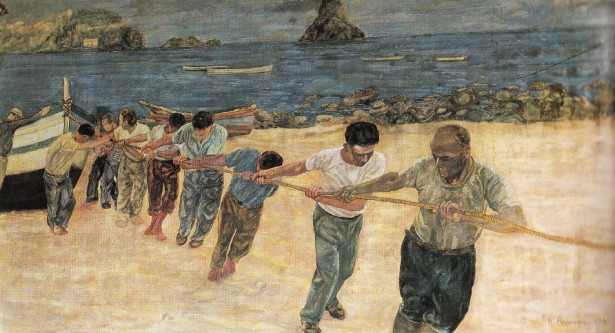
"Smart city" projects are a strategic opportunity for reorganizing local governance. A smart city is a complex adaptive system (CAS) from a computational social science perspective. Smart cities promise a considerable rate of innovation that will benefit urban populations, making them more accessible in spatio-temporal terms, and increase efficiency and rationalization in the management of environmental and energy resources. Furthermore, they will promote new ICT competences. For this reason, technological innovation should be calibrated to these potential scenarios and properly planned so that it enables greater social equity and access.
Many "smart city" projects aim to demonstrate the valuable contribution of ICTs. However, significant diversity among urban systems make it clear that the interaction among urban attributes and processes that define a city as “smart” (smart economy, smart mobility, smart environment, smart people, smart living, smart governance) cannot overlook new government decisions and policies.
In fact, technologies that support each of the smart parameters must solve key challenges related to their effective usability, sustainability, and impact. There is therefore a need for including technological development and experimentation within governance cycles that are internal to each parametric domain (economy, mobility, environment) as well as externally
connected to the overall government of the socio-territorial, economic, and technological dynamics that are active in every area.
The Lipari 2014 School on Computational Social Science will examine the intersection between parameters that define a city as smart and the enabling technology that guarantees proper planning and implementation. World-renowned speakers will provide presentations on smart cities focusing on both salient social issues and the emerging technologies.
Join our facebook page to share experiences and photos with students and teachers from previous editions

List of speakers
-
Nicolas Malleson
Agent-Based Modelling for Smart Cities [abstract]
School of Geography, University of Leeds, UK
-
Prabhakar Raghavan
Social Networks and Proximity [abstract]
Vice President of Strategic Technologies, Google, USA
-
Carlo Ratti
Senseable Cities [abstract]
Director, MIT Senseable City Lab, and Partner, Carlo Ratti Associati, USA, Italy
Special Guest Speakers
-
Claudio Cioffi-Revilla
George Mason University, USA
Tutorials
-
Stefano Leonardi
Algorithms for forming teams of experts with online coordination [abstract]
University of Rome La Sapienza, Italy
-
Davide Bennato
Community detection from a computational social science perspective [abstract]
University of Catania, Italy
-
Vladimiro Patatu
Achieving Open Government Transparency, Participation and Collaboration through Business Process Management[abstract]
Etna Hitech S.c.p.a., Italy
School director
- Prof. Claudio Cioffi-Revilla, George Mason University, USA
Scientific Committee
- Prof. Alfredo Ferro, University of Catania, Italy
- Prof.Paolo Ferragina, University of Pisa, Italy
- Prof. Giovanni Giuffrida,University of Catania, Italy
- Prof. Carlo Pennisi, University of Catania, Italy
- Prof. Alberto Trobia, University of Palermo, Italy
- Prof. Rosalba Giugno, University of Catania, Italy
- Prof. Alfredo Pulvirenti, University of Catania, Italy
People interested in receiving further information about the school can contact:
Lipari School Organization
Prof. Alfredo Ferro -- Lipari School secretary
Universita' degli Studi di Catania - Dipartimento di Matematica e Informatica
Citta' Universitaria - Viale A.Doria, 6 - 95125 Catania - ITALY
Tel: +39 095 7383071
Fax: +39 095 7337032 / +39 095 330094
E-mail:school@dmi.unict.it







